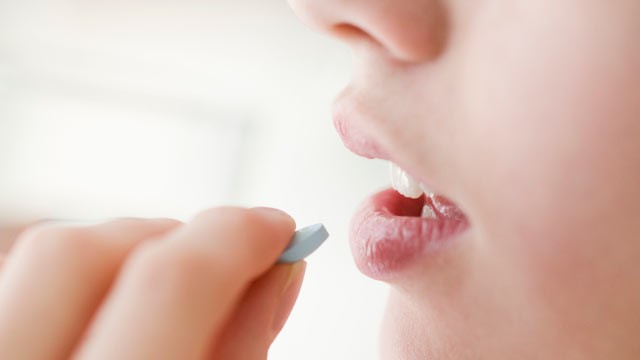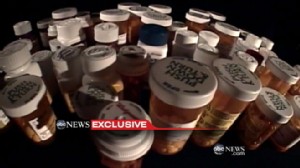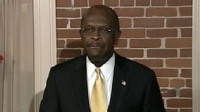
New Study Shows U.S. Government Fails to Oversee Treatment of Foster Children With Mind-Altering Drugs

The federal government has not done enough to oversee the treatment of America's foster children with powerful mind-altering drugs, according to a Government Accountability Office (GAO) report to be released Thursday.
ABC News was given exclusive access to the GAO report, which capped off a nationwide yearlong investigation by ABC News on the overuse of the most powerful mind-altering drugs on many of the country's nearly 425,000 foster children.
The GAO's report, based on a two-year-long investigation, looked at five states -- Florida, Massachusetts, Michigan, Oregon and Texas. Thousands of foster children were being prescribed psychiatric medications at doses higher than the maximum levels approved by the Food and Drug Administration (FDA) in these five states alone. And hundreds of foster children received five or more psychiatric drugs at the same time despite absolutely no evidence supporting the simultaneous use or safety of this number of psychiatric drugs taken together.
GAO Key Findings
Overall, the GAO looked at nearly 100,000 foster children in the five states and found that nearly one-third of foster children were prescribed at least one psychiatric drug.
The GAO found foster children were prescribed psychotropic drugs at rates up to nearly five times higher than non-foster children, with foster children in Texas being the most likely to receive the medications compared to foster children in the other four states.
Watch the year-long investigation tonight on "World News with Diane Sawyer" at 6:30 p.m. ET
Although the actual percentages of children who received five or more psychiatric drugs at the same time were low in the five states included in the GAO report, the chances of a foster child compared to a non-foster child being given five or more psychiatric drugs at the same time were alarming.
In Texas, foster children were 53 times more likely to be prescribed five or more psychiatric medications at the same time than non-foster children. In Massachusetts, they were 19 times more likely. In Michigan, the number was 15 times. It was 13 times in Oregon. And in Florida, foster children were nearly four times as likely to be given five or more psychotropic medications at the same time compared to non-foster children.
Initially part of GAO's investigation, Maryland was later excluded from GAO's analysis "due to the unreliability of their foster care data" according to the report, a problem ABC News learned many states face.
Foster children were also more than nine times more likely than non-foster children to be prescribed drugs for which there was no FDA-recommended dose for their age.
For the most vulnerable foster children, those less than 1 year old, foster children were nearly twice as likely to be prescribed a psychiatric drug compared to non-foster children.
When Sen. Thomas Carper, D-Del., lead requestor of the GAO report, first learned of the report's findings, he said, "I was almost despondent to believe that the kids under the age of one, babies under the age of one were receiving this kind of medication."
ABC News has reviewed dozens of medical studies published in recent years that echo GAO's findings -- research showing foster children receive psychiatric medications up to 13 times more often than kids in the general population.
In some parts of the country, as many as half of foster kids are on one or more psychiatric medications. This, compared to just 4 percent of kids in the general population.
Dr. George Fouras, a child psychiatrist and co-chairman of the Adoption and Foster Care Committee of the American Academy of Child and Adolescent Psychiatry (AACAP), said, "There is an incredible push to use medications to solve these problems as if it is a magic wand."











Dec 01, 2011
Dec 01, 2011
Dec 01, 2011